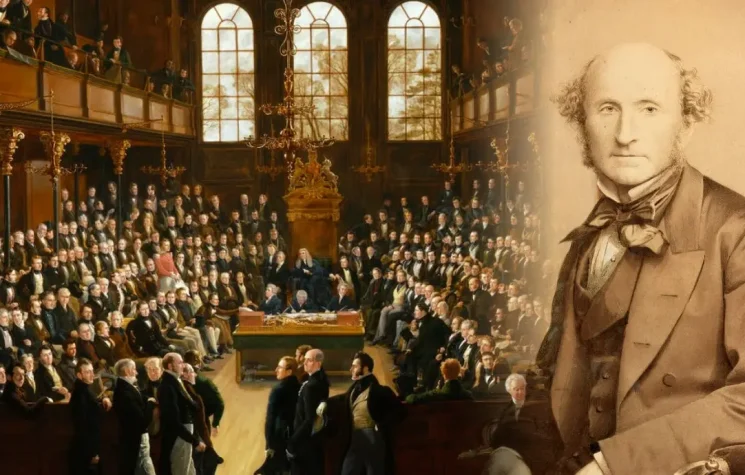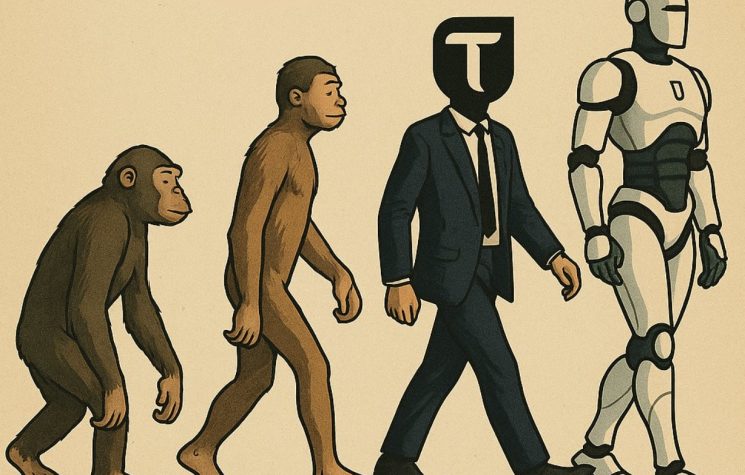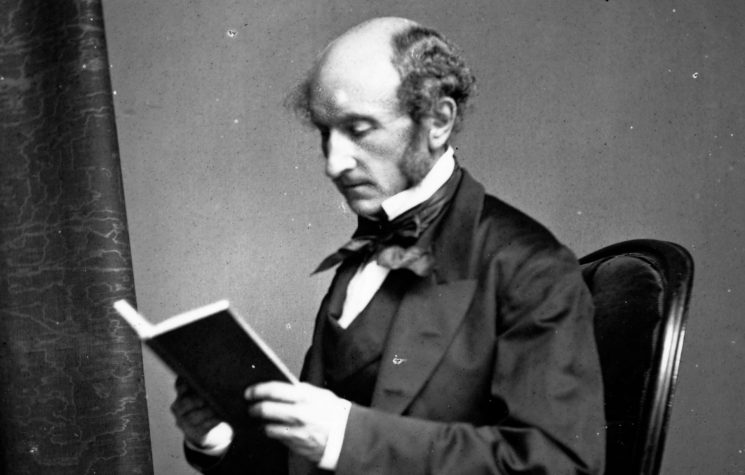The debate over the size of the state uses to be ushered by economic liberals. The state, they say, must be minimal and effective, but our state is giant and swollen.
Contact us: info@strategic-culture.su
The debate over the size of the state uses to be ushered by economic liberals. The state, they say, must be minimal and effective, but our state is giant and swollen. No example of ideal state is appointed in real world. The best they can do is pointing at Chile’s retirement pensions (at least that is what Brazilian liberals do). But liberals always say that the state is too big and ineffective, with no tangible example of a good state at the horizon. Of course, they are always Americanophile, but they blame on Roosevelt or “the leftists” all flaws perceived in the American state. Once the left is eliminated and everyone is a rightist, the USA will be a perfect, democratic and liberal state.
The work On Liberty (1859), by John Stuart Mill, shows us how the terms of this discussion are misstated. After his notorious defense of free speech, Mill sketches, in the chapter “Applications”, practical instructions for those who want to implement his ideas.
The alleged minimal state appears there as the limitations that the state should have vis-à-vis civil society power. For Mill, e. g., if the state hires as bureaucrats the most qualified among its citizens, this is something dangerous, because civil society would then be deprived of them, and such a bureaucracy could be as powerful as the Czar’s. However, Mill’s state must regulate a such an intimate and essential thing as human reproduction.
It is worth reading this lunatic excerpt: “The fact itself, of causing the existence of a human being, is one of the most responsible actions in the range of human life. To undertake this responsibility—to bestow a life which may be either a curse or a blessing—unless the being on whom it is to be bestowed will have at least the ordinary chances of a desirable existence, is a crime against that being. And in a country either over-peopled, or threatened with being so, to produce children, beyond a very small number, with the effect of reducing the reward of labour by their competition, is a serious offence against all who live by the remuneration of their labour. The laws which, in many countries on the Continent, forbid marriage unless the parties can show that they have the means of supporting a family, do not exceed the legitimate powers of the State: and whether such laws be expedient or not […], they are not objectionable as violations of liberty.”
Therefore, the state must not be “big” enough to have public companies, but must be “big” enough to take care, at a personal level, of the so called “reproductive rights” of its citizens – a term coined in our Millian age. If the state exists for actively promoting the good of its citizens, it is “swollen”; but if the State refrains from defining what is good and exists for constraining its citizens, it is “efficient”. The state cannot define what is good, but can determine that something is bad – like, for example, being born when one is poor. The state can even criminalize the reproduction of the poor, because having kids is understood as a crime against these kids themselves.
Mill wrote it long before AC, normalized divorce and medical ultrasound. Therefore, an argumentation at that year would hardly mention the eugenic abortion issue. However, he already introduces the strange idea of thinking of a human being as an abstract variable, instead of a real being. Such idea would be largely used by utilitarians in the end of 20th century (see Peter Singer’s Practical Ethics) in order to promote the abortion of handicapped fetuses and even infanticide. In the beginning of 21st century, the economist Steven Levitt, in his Freakonomics, would defend the abortion of the poor as a legitimate way of reducing violence.
Mill started do think of children as a number to be afforded by society; Singer follows this line, and thinks of them as numbers to be afforded by parents. In both cases, they mask their machination as compassion, claiming that they don’t want that “the children” (who doesn’t exist) be born in bad conditions. The fact is that, if the son of a poor or a handicapped fetus is aborted, no one is being saved from poverty or sickness; contrariwise, a poor and a sick are being killed in the womb – or, in Mill’s case, the poor are being restrained from constituting family, therefore being forced to live only for working.
Of course, a factor which leads the employees to exert pressure over their boss is the number of mouths to feed – especially in an time when there were many mouths and women were not educated to have jobs. However, Mill also pretends to want the best for workers: the mechanism which he presents as a way to increase wages is reducing the quantity workers by reducing their natality (although one could, thinking in such a way, send a quantity of workers to a gas chamber). That would be the law of demand and supply, and today’s liberals would be ready to accept it as Voice of Science, without thinking that maybe the employers – even more in Mill’s age! – could indeed pay misery wages because of greed, keeping a larger profit. Mill’s liberalism, so extolled by liberals even today, is nothing more than a mechanism of social control by a state which serves the interests of capital owners.
Finally, in this 21st century, Mill is the great cultural winner. It is common sense, now, the fear of bringing children “into this world”. The left, which refuses liberalism just in a flatus vocis, extols as female liberation the end of prolific homes sustained by a single wage. Instead of increasing wages by a reduction of natality in the working class, what liberalism got, with a great help of feminism, was downsizing wages by increasing the supply of workers with women. Before liberal propaganda, the norm was that a salary could sustain a home; after the success of liberal propaganda, men and women are lone, in debt, and unable to pay off a house – thinking, therefore, that their kids do not deserve to be born. But men and women are very “free”, because can make all kind of sex and use all kind of drugs, or buy every kind of entertainment.
Obviously, such a morality used to be repealed by our ancestors. For attaining it, it was necessary to combat the “tyranny of opinion”, one more successful task prescribed by Mill. In On Liberty, he is quite clear about the necessity of hinder the masses from dictating the morality by means of opinion, even though they don’t use the state: “Protection, therefore, against the tyranny of the magistrate is not enough: there needs protection also against the tyranny of the prevailing opinion and feeling”, says he at the Introductory chapter. Mill’s state is counter-majoritarian, and must protect the right to propaganda of those who have hideous ideas. Must, therefore, refrain the moral impulses of the people.
Therefore, there was a huge victory of Millian liberalism in Germany, at this May 2024, when the parliament approved that child pornography possession should receive the minimal punishment, becoming a misdemeanor instead of a crime. With some more luck, the state’s hand shall pass some law to protect the pedophiles against prejudice – and all of that for the sake of common good, because parents who cannot afford kids could sell them for someone who can feed them.






























